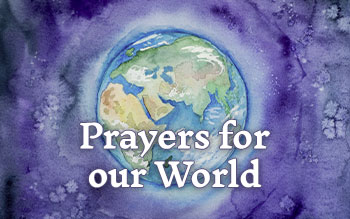Displaying items by tag: Asia
Taiwan tells China to back off as airspace 'incursions' rise
Taiwan has reported a sharp rise in incursions by Chinese warplanes into its air defence identification zone. Foreign minister Joseph Wu urged Beijing to ‘return to civilised international standards’ after a Chinese foreign ministry spokesman said there was no so-called median line in the Taiwan Strait ‘as Taiwan is an inseparable part of Chinese territory’, to be taken by force if necessary, even though the island has been self-ruled for more than 70 years. Beijing has ratcheted up pressure on the democratic island since the 2016 election of President Tsai who rejects its view that Taiwan is part of ‘one China’. Taiwan accuses China of violating a long-held tacit agreement after China’s fighter jets began crossing the median line of the waters that separate the two sides. Now tension between the two is at its highest in years, with Taiwanese fighter jets scrambling to intercept the Chinese aircraft last week.
Pray for the Philippines
The Philippines have a Christian majority, with a population of over 100 million. 8-10 million Filipinos live abroad, working as nurses, engineers, domestic servants, nannies, casual labourers and sailors. Many are enthusiastic and effective witnesses for Christ, often in countries where Christianity is most restricted or persecuted. Some have suffered greatly for their faith. The Philippines struggle against poverty, injustice, corruption, poor infrastructure, unreformed land laws, tropical storms, and heavy-handed government. A rampant drug trade has evoked the murder of thousands, with victims rarely those responsible for drug trading. The government’s ‘war on drugs’ looks like a war on slum-dwellers - where most victims come from. The Church includes vibrant and charismatic grassroots movements devotedly following Jesus and moving in the Spirit. Their problems are those associated with rapid growth: splits, false teachings, personality cults, and widespread poverty. Pray for continued growth of Christian ministries among the urban poor.
Hong Kong: more arrests ahead of rally
Opposition activist Joshua Wong was arrested over illegal assembly last October and the anti-mask law, which bans people from covering their faces during protests. He spread the news of his arrest via Twitter. Veteran social activist Koo Sze-yiu was also detained in connection with the incident. Referring to a rally planned for National Day, Wong said, ‘The government wants to produce a chilling effect on Hong Kong people in order to frighten people away from the 1 October march. I will continue to resist, and we should also let the world know Hong Kong people will not easily surrender. They can’t censor our commitment to fight for freedom. The chilling effect will not work and is not the way out.’ It is the third time he has been prosecuted since June.
Afghan president addresses General Assembly
President Ashraf Ghani said Afghanistan had UN values enshrined in its constitution, but the pandemic has exposed vulnerabilities. He said: ‘The industrial revolution is a driver of inequality and unemployment and we must think ahead of our time. Violence and warfare are another source of turbulence in the fifth wave of global terrorism. Peace talks with the Taliban are not enough: we must get to the root of the terrorism blighting our region and address it as the global phenomenon and threat that it is. Climate change brings floods and drought needing regional solutions based on international models. Afghanistan is the 17th worst-affected country. All the above culminates as an explosion of inequality. But Afghanistan is in the heart of Asia. Our water ties us together; our cultures and languages give us a common denominator; South Asia needs energy resources, and Central Asia’s abundance of them makes Afghanistan a connector.’ For the full statement, see
India: persecution continues
Year after year, Uttar Pradesh is identified as the state where most Christian Indians are persecuted. 86 of the 366 violent attacks on Christians recorded in 2019 took place in Uttar Pradesh, and 2020 has seen little improvement. While the pandemic probably reduced the rate of persecution, recent reports indicate the number of attacks on Christians is increasing as India emerges from lockdown. ‘I would have been killed if God hadn’t been with me,’ Pastor Alok Tomar recently told International Christian Concern. ‘I was worried that I would not survive as the torture was so intense. Different ones took turns as I was beaten with lashes from the police belt.’ Pastor Tomar was telephoned and told to report to the police station immediately. ‘I felt safe because I was going to the police station.’ He was accused of forced religious conversions and kept in custody and tortured for three days by the police. It was another four days before he was given bail.
Jordan: First COVID-19 cases in camp for Syrian refugees
They are the first cases to be detected among Syrians living in Jordan-based refugee camps, the UN refugee agency in Jordan said on 8th September ‘It is a reminder that everyone has been affected by this epidemic, and solutions must be addressed through international solidarity and cooperation.’ At the time of writing the two affected refugees have been transferred from the Azraq camp to the Dead Sea Isolation Site. Testing plus isolation procedures are being implemented for all individuals who have been in contact with them. The Azraq camp is Jordan's second-largest with almost 37,000 refugees. Jordan hosts over 1.2 million Syrian refugees, including 650,000 registered with the UN. To date, the kingdom has reported 2,478 coronavirus cases and 17 related deaths.
UAE / Israel: Palestine fears birth of ‘Arab Zionists’
The PLO’s chief negotiator and executive secretary expressed concern that the UAE’s peace agreement with Israel will lead to other Arab states reaching similar ‘normalisation’ agreements. The PA sees such agreements as disregarding their demand that Palestinian ‘self-determination and independence’ must precede any formation of Arab friendly relations with Israel. The PLO said, ‘It is ‘a public birth for the Arab Zionists’, and admiration or support for Israel is forbidden. There are Arab groups that say, ‘Palestine is not my cause’. Groups say, ‘The Palestinians are ungrateful and we are employing them. We’ve helped them, but Israel is a beautiful, successful state.’
Iran: legal system an obstacle to MeToo justice
While an increasing number of rape and sexual assault victims are speaking out in Iran, the legal code often prevents justice and puts some victims at risk of punishment. The #MeToo movement has finally emerged among Iranians, sending shockwaves across Persian language social media. Over the past week many women and men have come forward to talk about their experiences of rape and sexual assault by dozens of high-profile figures in the country. Although the official media remain indifferent to the stories, they have stirred public uproar to the point that the police in Tehran arrested a well-known bookshop owner accused of rape by several women. No one can doubt the bravery and courage of individuals who break the taboos and talk about their personal experiences of sexual harassment in a country where patriarchal values are reproduced and reinforced by the state.
Lebanon: mental health of survivors
Lebanon faces a humanitarian emergency following the 4 August blast in Beirut port, and the psychological effects will not end once the dust settles, said Dr Ahmed Hankir, a psychiatrist. Some of the initial reactions to traumatic events include sadness, agitation, dissociation, and survivor’s guilt. While most ongoing reactions are normal responses to the incident, residents are being told that seeking help from a mental health professional is advised should they persist for more than a month after the blast. Help should also be immediately sought if someone is having severe reactions, such as suicidal ideas. Mental health services are expensive in Lebanon, but several organisations are providing services for individuals affected by the blast either at a reduced price or free. Pray for God’s strength and wisdom to pour through NGOs raising awareness around mental health, for those manning suicide prevention helplines and walk-in clinics.
North Korea: Briefing
Things in North Korea seem a bit murkier than usual, not that it is ever very clear what is going on up there.
The latest big questions have to do with Kim Jong-un's health. There are knowledgeable friends of mine who are very sure his health is not good and it stands to reason that his life-style is not a healthy one, yet there are mixed signals and confusing reports.
A former aid to former South Korean President Kim Dae-jung insists that the leader has been in a coma since March and that the various reports of his activities and photos are all fake. Some are saying that he is either sharing power with his sister, Kim Yo-jong, as indicated by the South's National Intelligence Agency, or that she is second in command. However, this is not getting much credence in the South where the government insists that he is still very much in control and active. And, she failed to appear at a recent Politburo meeting. There was serious flooding earlier this month in Unpa County. Kim Jong-un showed up driving his luxury SUV to survey the damage in a photo that it seems would be very difficult to fake. He insisted that food supplies be sent to the stricken county for which people express great gratitude--but it's still difficult there.
While things are unclear at the highest levels, the Covid-19 situation is equally as obscure. As we saw last month, Kim Jong-un stated that there was no Covid-19 in the North until a former defector re-defected to the North from the South bringing in the virus, while the South Korean police insist he was virus-free. Now the authorities have locked down the cities of Samjiyon and Hyesan because a woman crossed the border from China. They have also suspended all trade across the border with China and have halted major building projects all because of the pandemic. The hits on the economy are serious threats to the Leader's position. Prior to the arrival of Typhoon Bavi, Kim Jong-un called for three major crisis meetings about Covid-19, the coming storm and the need to continue restoration work from flooding earlier in the month.
As if all of this is not enough trouble in the North, there was a massive gas explosion in the city of Hyesan that levelled many houses, left a number of people dead and injured more. It appeared that little, if anything was being done by the authorities in response.
Finally, we continue to be concerned about the civil rights situation in South Korea where the government continues to crack down on North Korean defector and human rights groups as well as continuing its anti-leaflet campaign. Here is a two part article (Part 1 and Part 2) on Voice of the Martyrs Korea and their efforts to get Bibles into North Korea. Please pray that the Word of God get into this land that cannot stand for knowledge to enter the country.
Remembering Our Brothers in Prison
We've been praying for six South Korean missionaries held in the North, Kim Jung-wook, Kim Kuk-gi, Choi Chun-gil, Kim Won-ho, Ham Jin-woo and Ko Hyun-chul. We are excited to share that a new effort is underway urging that they be repatriated. You can join the campaign by signing the petition here. There are some young men who are on a pilgrimage to raise awareness of the situation. We continue to pray for Daily NK journalist, Choi Song Min (alias). Here's information on the pastors and others who have been detained and released. Please remember them in your prayers.
Calling our Nations to Repentance
40 days of worship and prayer from September 1st to October 11th calling Korean Christians to return to their first love and to carry the Gospel into all the world. Please check out the 40 Days website.
The Fourth River Project, Inc. - www.thefourthriver.org
See our Prayer for Korea article below, prepared by our colleagues at NGI









